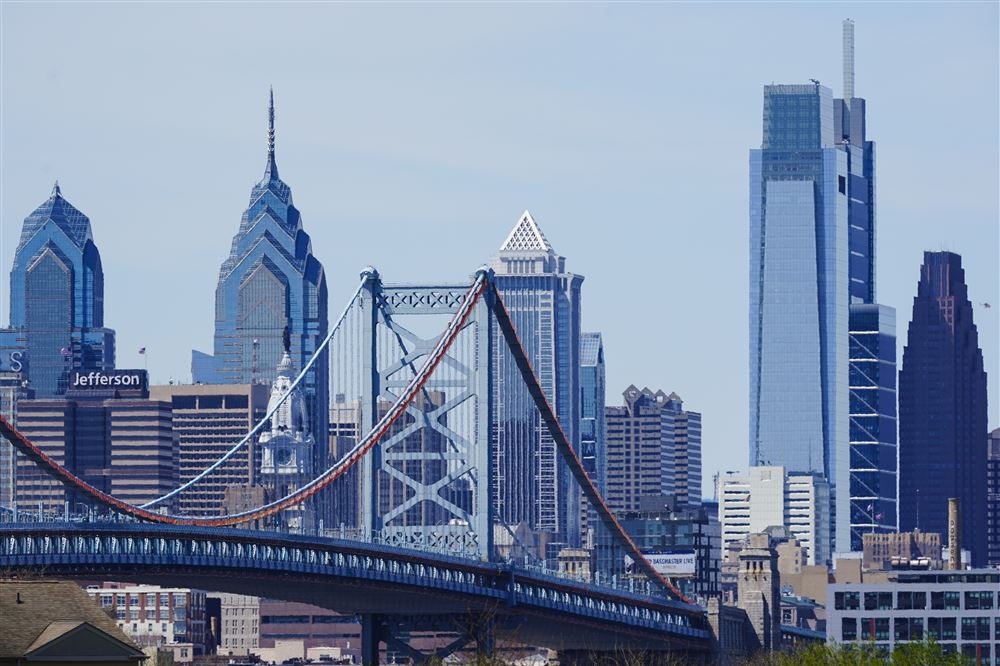Plan to help Downtown through new taxes or fees peters out
By Mark Belko / Pittsburgh Post-Gazette
A proposal that would allow the city of Pittsburgh to impose new taxes or fees to help finance revitalization efforts Downtown appears to have fizzled out, at least for the time being.
State legislation that would have enabled the city to “levy a tax or impose additional fees” or divert revenue from existing taxes to fund such initiatives apparently has yet to make it out of the draft stage.
Given that, it’s unlikely that such a bill will be considered during the current legislative session in Harrisburg, which is set to finish at the end of November.
“I think it’s dead,” said Sen. Wayne Fontana, the Brookline Democrat whose district includes Downtown.
Under draft legislation obtained by the Pittsburgh Post-Gazette in August, money raised through taxes or fees could be used to help fund the conversion of failing Downtown office buildings into residential or to fill ground-floor or lower-level commercial spaces.
Revenue also could be earmarked to advance “critical infrastructure and amenity projects within the public realm that improve the overall quality of life necessary for attracting and retaining residents, businesses, and visitors to downtown areas.”
The draft legislation, dubbed the Downtown Reinvestment Program, or DRIP, was similar to a proposal advanced by the Allegheny Conference on Community Development to create a Downtown investment zone funded by new taxes or fees to help with the conversion of office buildings or other improvements.
The conference had hoped to raise as much as $200 million for such initiatives through enabling legislation passed by the General Assembly authorizing the city to generate “new local revenue,” possibly through taxes or fees.
Mr. Fontana had circulated a memo in June seeking support from fellow senators for legislation establishing a Downtown Reinvestment Program “to enable and equip local governments with the tools and resources necessary to reinvest in our Downtown areas.”
That would have included “new and tailored funding mechanisms to address their unique needs and build upon ongoing downtown revitalization efforts.”
The draft bill originated in the House and was sent to Mr. Fontana’s office. But the House hasn’t followed up with a formal version, so nothing has been introduced in the Senate, an aide to the senator said Monday.
Mr. Fontana said he didn’t know if there would be another attempt to submit a bill in the Senate or the House in the future.
Olga George, spokeswoman for Mayor Ed Gainey, declined comment Monday.
In a statement, Allegheny Conference CEO Stefani Pashman said, “we are aggressively fundraising to deliver on our public-private partnership that will revitalize Downtown.
“We will have details to share very soon on the next step of our strategy,” she added.
The Allegheny Conference announced a Downtown revitalization plan in June that calls for big improvements to Point State Park, Market Square and the Eighth Street block of the Cultural District.
Under the draft legislation, it appears that those upgrades would qualify as “critical infrastructure and amenity projects within the public realm that improve the overall quality of life necessary for attracting and retaining residents, businesses, and visitors to downtown areas” and would be eligible for funding.
The draft bill did not specify what taxes or fees could be imposed. The enabling legislation would be available to all cities in the state, not just Pittsburgh.
It likewise would give the city, as well as other taxing bodies throughout the state, the power to set boundaries for a Downtown reinvestment program. Furthermore, the city could create an authority to manage the program, award funding, enter contracts and issue bonds.
The proposal was advanced at a time when Downtown is struggling with high office vacancies and plunging property values that are affecting city, Pittsburgh school district, and county tax revenues.
Allegheny County Executive Sara Innamorato recently proposed a 46.5% property tax increase, in part because of declining commercial and residential tax revenue caused by assessment appeals.
To help with building conversions and other projects to bolster the Golden Triangle, City Council approved a 10-year tax abatement program in May.
The city’s Urban Redevelopment Authority also has set up a loan fund to help increase the stock of affordable housing in Downtown. In addition, it is seeking $30 million in state assistance to aid with office-to-residential conversions.
Staff writer Ford Turner contributed to this story.
